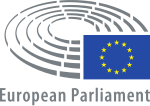
The European Parliament (EP) is one of the legislative bodies of the European Union and one of its seven institutions. Together with the Council of the European Union, it adopts European legislation, following a proposal by the European Commission. The Parliament is composed of 705 members (MEPs). It represents the second-largest democratic electorate in the world, with an electorate of 375 million eligible voters in 2009.
The term federalist describes several political beliefs around the world. It may also refer to the concept of parties, whose members or supporters called themselves Federalists.

Richard Graham Corbett CBE is a former British politician who served as the final Leader of the European Parliamentary Labour Party (EPLP), from 2017 to 2020. He was a Member of the European Parliament (MEP) for Merseyside West from 1996 to 1999 and then for Yorkshire and the Humber from 1999 to 2009, when he lost his seat, and again from 2014 to 2020. He attended Shadow Cabinet meetings and was a member of the Labour Party's National Executive Committee.

Elmar Peter Brok is a German politician who served as Member of the European Parliament (MEP) from 1980 until 2019, who is best known for his role as chairman of the European Parliament Committee on Foreign Affairs. He is a member of the CDU, which is part of the European People's Party.

The European Movement International is a lobbying association that coordinates the efforts of associations and national councils with the goal of promoting European integration, and disseminating information about it.
Christopher Murray Jackson was a British businessman and Conservative Party politician who served as a Member of the European Parliament (MEP) from 1979 to 1994.
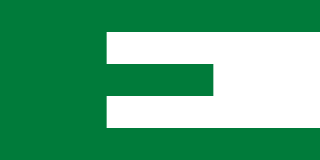
The Union of European Federalists (UEF) is a European non-governmental organisation, campaigning for a Federal Europe. It consists of 20 constituent organisations and it has been active at the European, national and local levels since 1946.

Altiero Spinelli was an Italian politician, political theorist and European federalist, referred to as one of the founding fathers of the European Union. A communist and militant anti-fascist in his youth, Spinelli spent 10 years imprisoned by the Italian fascist regime. Having grown disillusioned with Stalinism, he broke with the Communist Party of Italy in 1937. Interned in Ventotene during World War II, he, along with fellow democratic socialists, drafted the manifesto For a Free and United Europe in 1941, considered a precursor of the European integration process.

The European Federalist Movement was founded in Milan in 1943 by a group of activists led by Altiero Spinelli. The principles which inspired its foundation are contained in the Ventotene Manifesto, drawn up in 1941 by Spinelli himself, Eugenio Colorni, Ursula Hirschmann and Ernesto Rossi, and circulated by the in May 1943 circulated L'Unità europea periodical. Vayssière notes that the manifesto is widely seen as the birth of European federalism. Spinelli (1907–86), a former Communist, became a leader of the federalist movement due to his primary authorship of the Manifesto and his postwar advocacy. The manifesto called for a break with Europe's past to form a new political system through a restructuring of politics and extensive social reform. It was presented not as an ideal, but as the best option for the Europe's postwar condition.

The Ventotene Manifesto, officially entitled For a Free and United Europe. A Draft Manifesto, is a political statement written by Altiero Spinelli, Ernesto Rossi, and Eugenio Colorni, while they were imprisoned on the Italian islet Santo Stefano of the island of Ventotene during World War II. Completed in June 1941, the manifesto was circulated within the Italian Resistance, and it soon became the programme of the Movimento Federalista Europeo. It called for a socialist federation of Europe and the world. In the text, European federalism and world federalism are presented as a way to prevent future wars. Vayssière notes that the manifesto is widely seen as the birth of European federalism. Spinelli, who was later elected to the European Parliament within the Italian Communist Party lists, became a leader of the federalist movement due to his primary authorship of the Manifesto and his postwar advocacy. The manifesto called for a break with Europe's past to form a new political system through a restructuring of politics and extensive social reform. It was presented not as an ideal, but as the best option for Europe's postwar condition.

The Espace Léopold or Leopoldruimte is the complex of parliament buildings in Brussels, Belgium, housing the European Parliament, a legislative chamber of the European Union (EU). It consists of a number of buildings, primarily the oldest, the Paul-Henri Spaak building, which houses the debating chamber and the President's offices, and the Altiero Spinelli building, which is the largest. The buildings are located in the European Quarter of Brussels, with construction starting in 1989.

Sven Giegold is a German politician of the Alliance 90/The Greens who has been serving as State Secretary in the Federal Ministry for Economic Affairs and Climate Action in the coalition government of Chancellor Olaf Scholz since 2021. He was a member of the European Parliament from 2009 to 2021.
The Centre for Studies on Federalism (CSF) was established in November 2000 with the primary purpose of studying and researching the theory and practice of Federalism both as a political doctrine and in its implementation in the institutional systems of the Modern state. CSF's main focus is on the infra-national, macro-regional and global scale of federalism: it specifically considers regional integration at a time of globalisation, with special reference to Europe, its history and civilization, its progress towards unification and its future.

The Spinelli Group is an initiative founded with a view to reinvigorate the endeavour for federalisation of the European Union (EU), by creating a network of citizens, think tanks, NGOs, academics, writers and politicians who support the idea of a federal and united Europe. Among other goals, the Group aims to "find a federal majority [among members of the European Parliament] on important subjects." Founded on 15 September 2010 in the European Parliament (EP) in Brussels, the group is named after Altiero Spinelli (1907–1986), founder of the Union of European Federalists (UEF) and a founding father of the European integration.

The European Federalist Party is a European political party founded on 6 November 2011 in Paris. The EFP is one of the first European-oriented political parties that openly defends European federalism and is not a coalition of pre-existing national parties.

Italian Council of the European Movement is an Italian advocacy group.
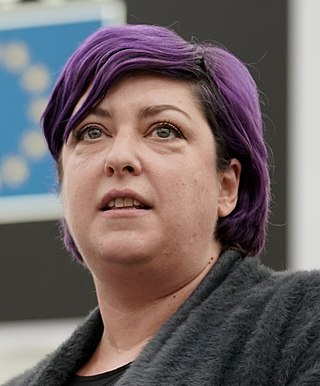
Eider Gardiazabal Rubial is a Spanish politician of the Spanish Socialist Workers' Party (PSOE) who has been serving as a Member of the European Parliament since the 2009 elections.
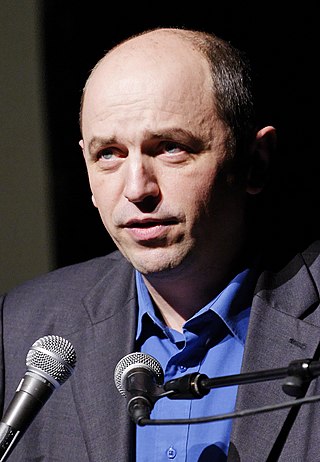
Pierre Larrouturou is a French economist and politician who has been serving as a Member of the European Parliament since 2019. He previously was a regional councilor of the Île-de-France.
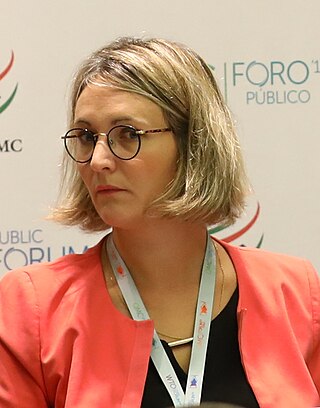
Marie-Pierre Vedrenne is a French lawyer and politician who was elected as a Member of the European Parliament in 2019.
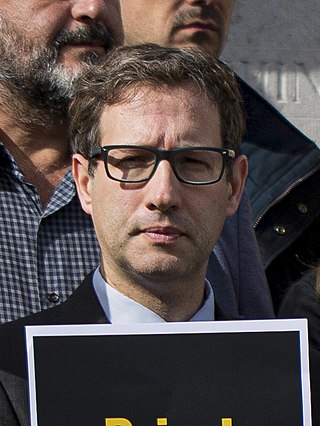
Domènec Ruiz Devesa is a Spanish politician of the Spanish Socialist Workers' Party (PSOE) who was elected as a Member of the European Parliament in 2019.

















